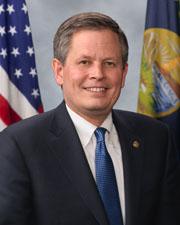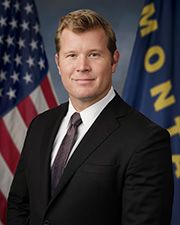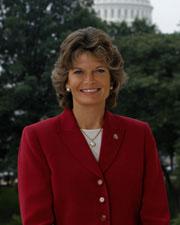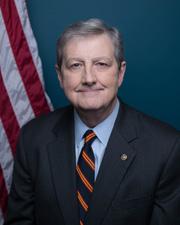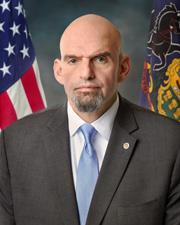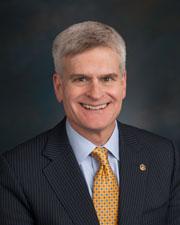11
6
6
A bill to require the Federal Energy Regulatory Commission to extend the time period during which licensees are required to commence construction of certain hydropower projects.
8/2/2025, 11:25 AM
Summary of Bill S 1020
Bill 119 s 1020, also known as the "Hydropower Permit Extension Act," is a proposed piece of legislation that aims to require the Federal Energy Regulatory Commission (FERC) to extend the time period in which licensees are required to begin construction on certain hydropower projects. Currently, under the Federal Power Act, licensees are required to commence construction within a specific timeframe after receiving a license from FERC. However, this bill seeks to provide an extension to this deadline in order to allow licensees more time to secure necessary permits, financing, and other resources needed to begin construction.
The bill specifically targets hydropower projects, which are a renewable energy source that harnesses the power of flowing water to generate electricity. Hydropower is considered a clean and sustainable energy source, and expanding hydropower projects can help reduce reliance on fossil fuels and combat climate change.
By extending the construction deadline for hydropower projects, this bill aims to promote the development of more renewable energy sources and support the growth of the hydropower industry in the United States. This could lead to increased investment in clean energy infrastructure, job creation in the renewable energy sector, and a reduction in greenhouse gas emissions. Overall, Bill 119 s 1020 seeks to support the expansion of hydropower projects by providing licensees with more time to begin construction, ultimately contributing to the transition towards a more sustainable and environmentally friendly energy system in the United States.
The bill specifically targets hydropower projects, which are a renewable energy source that harnesses the power of flowing water to generate electricity. Hydropower is considered a clean and sustainable energy source, and expanding hydropower projects can help reduce reliance on fossil fuels and combat climate change.
By extending the construction deadline for hydropower projects, this bill aims to promote the development of more renewable energy sources and support the growth of the hydropower industry in the United States. This could lead to increased investment in clean energy infrastructure, job creation in the renewable energy sector, and a reduction in greenhouse gas emissions. Overall, Bill 119 s 1020 seeks to support the expansion of hydropower projects by providing licensees with more time to begin construction, ultimately contributing to the transition towards a more sustainable and environmentally friendly energy system in the United States.
Read the Full Bill
Current Status of Bill S 1020
Bill S 1020 is currently in the status of Passed in Senate since July 29, 2025. Bill S 1020 was introduced during Congress 119 and was introduced to the Senate on March 13, 2025. Bill S 1020's most recent activity was Held at the desk. as of August 1, 2025
Bipartisan Support of Bill S 1020
Total Number of Sponsors
11Democrat Sponsors
0Republican Sponsors
11Unaffiliated Sponsors
0Total Number of Cosponsors
18Democrat Cosponsors
3Republican Cosponsors
15Unaffiliated Cosponsors
0Policy Area and Potential Impact of Bill S 1020
Primary Policy Focus
EnergyPotential Impact Areas
- Alternative and renewable resources
- Dams and canals
- Electric power generation and transmission
- Infrastructure development
- Licensing and registrations
Alternate Title(s) of Bill S 1020
A bill to require the Federal Energy Regulatory Commission to extend the time period during which licensees are required to commence construction of certain hydropower projects.
A bill to require the Federal Energy Regulatory Commission to extend the time period during which licensees are required to commence construction of certain hydropower projects.
Comments

Lucia Hoyle
400
4 months ago
This bill is so sad, but it's good that they're extending the time for construction. It's gonna help a lot of people, including me. Can't wait to see the long term affects of it!
Sponsors and Cosponsors of S 1020
Latest Bills
Technical Corrections to the Northwestern New Mexico Rural Water Projects Act, Taos Pueblo Indian Water Rights Settlement Act, and Aamodt Litigation Settlement Act
Bill S 640December 12, 2025
Keweenaw Bay Indian Community Land Claim Settlement Act of 2025
Bill S 642December 12, 2025
ARCA Act of 2025
Bill S 1591December 12, 2025
Disaster Related Extension of Deadlines Act
Bill HR 1491December 12, 2025
Billion Dollar Boondoggle Act of 2025
Bill S 766December 12, 2025
PORCUPINE Act
Bill S 1744December 12, 2025
Miccosukee Reserved Area Amendments Act
Bill HR 504December 12, 2025
Crow Tribe Water Rights Settlement Amendments Act of 2025
Bill S 240December 12, 2025
Technical Correction to the Shoshone-Paiute Tribes of the Duck Valley Reservation Water Rights Settlement Act of 2025
Bill S 546December 12, 2025
Tribal Trust Land Homeownership Act of 2025
Bill S 723December 12, 2025
To require the Federal Energy Regulatory Commission to extend the time period during which licensees are required to commence construction of certain hydropower projects.
Bill HR 2072March 25, 2025
